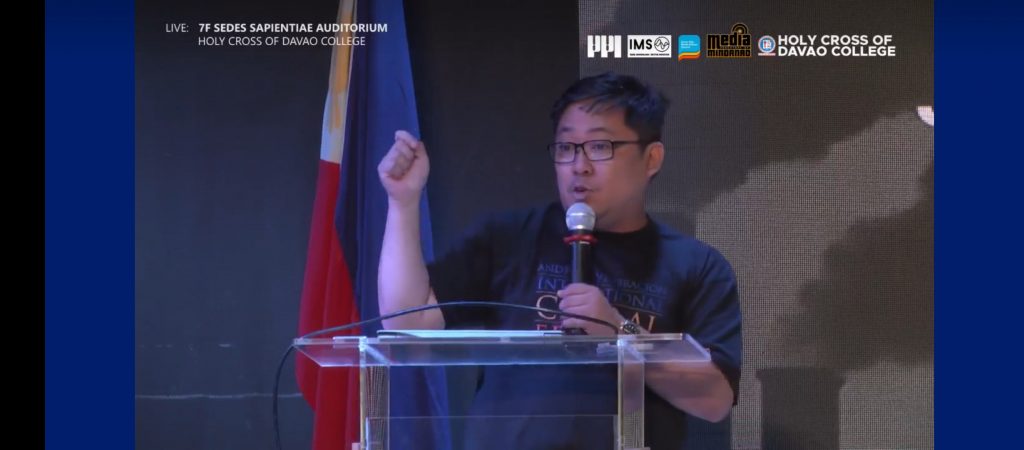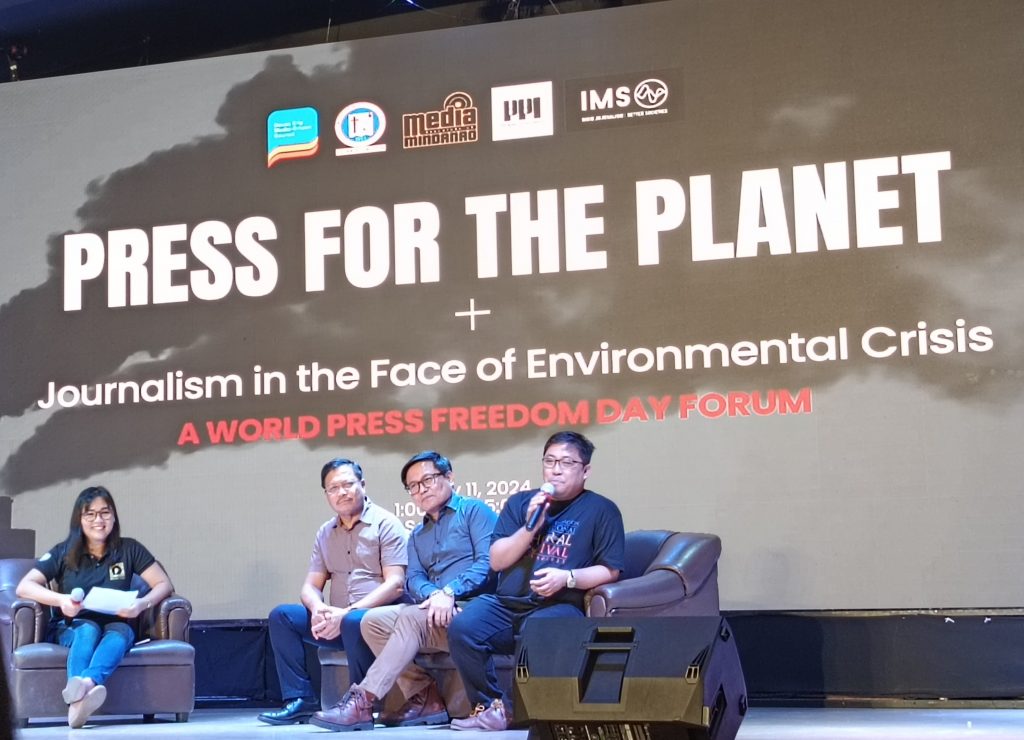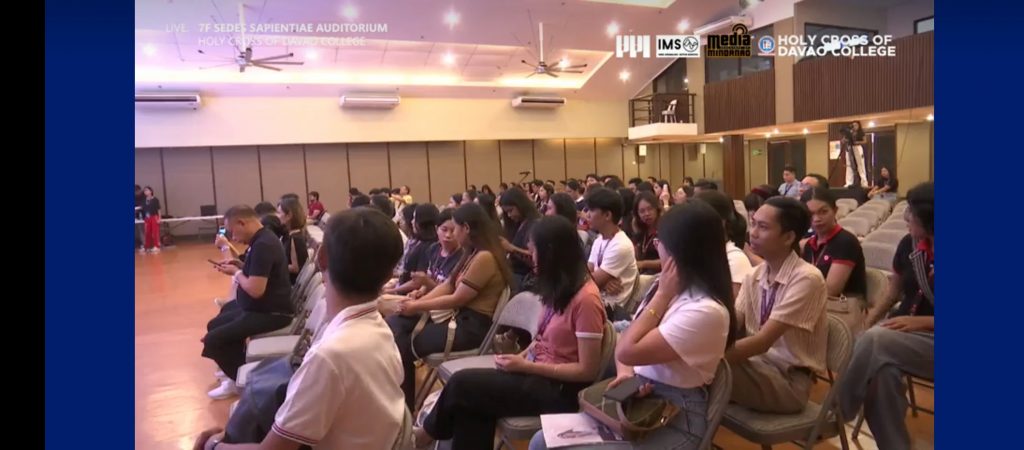A UNIVERSITY of the Philippines professor advised journalism students that merely informing the public is not enough and instead engage them to ignite a call for action.

During the forum-themed “Press for the Planet: Journalism in the Face of Environmental Crisis,” on May 11, Professor Dennis Sumaylo from the University of the Philippines-Mindanao stressed the role of the press in engaging the community in reporting pressing environmental issues.
Sumaylo, one of the speakers during the forum highlighted that involving the community is an important element in disaster risk management communication.
“We have to look at how we engage with our audience and know our levels of engagement in the community,” he said stressing that a transformational level of engagement is needed for the stories to ignite action from them.

Sumaylo said that rather than entrusting traditional media such as posters on a natural calamity, it is better to connect with champions in the community who are well-versed in disaster preparation.
In disaster risk management, the continuity of sending information helps retain that piece of information.
“The audience can also impact other people, then this person can be the sender of our message, engage with her audience, and perhaps get more action coming from the people,” he said.
In the transformational level of engagement, he said, “tao na mismo ang magsabi na kailangan ko ito.”
Sumaylo also stressed the importance of going beyond the ordinary and not only revolving in a single piece of information such as the argument of reverting the classes to the old calendar due to the extreme heat index.
“Its not enough to say sana ibalik na lang sa old calendar para maiwasan natin ang sobrang init, but perhaps we go beyond that argument and look at how global warming impacts the changes that we are experiencing right now,” he said.
Up the game
Romeo Montenegro, Mindanao Development Authority Deputy executive director, said the role of communication in agricultural challenges is integral in conveying the initiatives and how the intended audience receives them.
“When we transmit information, we don’t just look at it in a one-way traffic, but whether or not that story was captured and there was action taken as a result of that story is something that has to be pursued vigorously,” Montenegro said.
He told the audience that this area needs to be cultivated to ensure messages sent to the targeted audience have generated the action that is expected to come out from it.

Positive messaging
Lope Santos III, National Anti-Poverty Commission secretary, said during the open forum of the program, that a positive view of a particular program has to be retained, rather than focusing on the negative.
The official bared this when asked how journalists should create stories on environmental advocacy.
“Yung mga message na pinapaabot natin, tingnan naman natin kung ano ang mga positibong programa, kasi if we take the negative, we tend to forget the positive programs with positive effects,” he said.
“Siguro ito naman ang ilutang natin baka naman sa halip na dumami ang critique, ay dumami naman ang participants for positive change,” he added.
The Philippine Press Institute, with the Davao City Media-Citizen Council, Holy Cross of Davao College, and the Media Educators of Mindanao along with media, environmentalists, thought leaders, and student journalists convened at Holy Cross of Davao College on May 11 in line with the commemoration of World Press Freedom Day.
